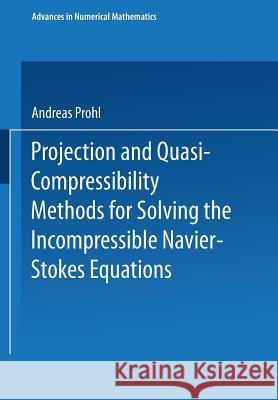Projection and Quasi-Compressibility Methods for Solving the Incompressible Navier-Stokes Equations » książka
Projection and Quasi-Compressibility Methods for Solving the Incompressible Navier-Stokes Equations
ISBN-13: 9783519027232 / Angielski / Miękka / 1997 / 308 str.
The numerical treatment of the evolutionary incompressible Navier-Stokes equations, which determine many practicaIly relevant fluid flows, is an area of considerable interest for industrial as weIl as scientific applications. Im portant for drawing furt her conclusions for the behavior of certain flows in diverse disciplines such as (astro-)physics, engineering, meteorology, oceanog raphy, or biology is a reliable, robust and efficient numerical model. The goal of computing highly complex flows requires the development of sophisticated algorithms. In general, numerical schemes which do not cause high computa tional cost, often suffer from stability or reliability problems and vice versa. So, it demands a numerical and physical a-priori knowledge from the user in order to select the "best fitting algorithm" for a particular problem under consideration. The use of knowledge about physical phenomena appearing in a specific problem aIlows the relaxation of some robustness-conditions that otherwise need to be imposed on the numerical scheme in order to ensure reliability with respect to the convergence behavior. To this end, this leads to permittance of numerical models simulating continuous flows which do not satisfy severe stability restrictions that lead to robust schemes, with the advantage of lower computational costs necessary to obtain the same accu racy. A major part of this book is devoted to such schemes that are of great importance: classical projection methods 01 high er order and nonstationary quasi-compressibility methods.











